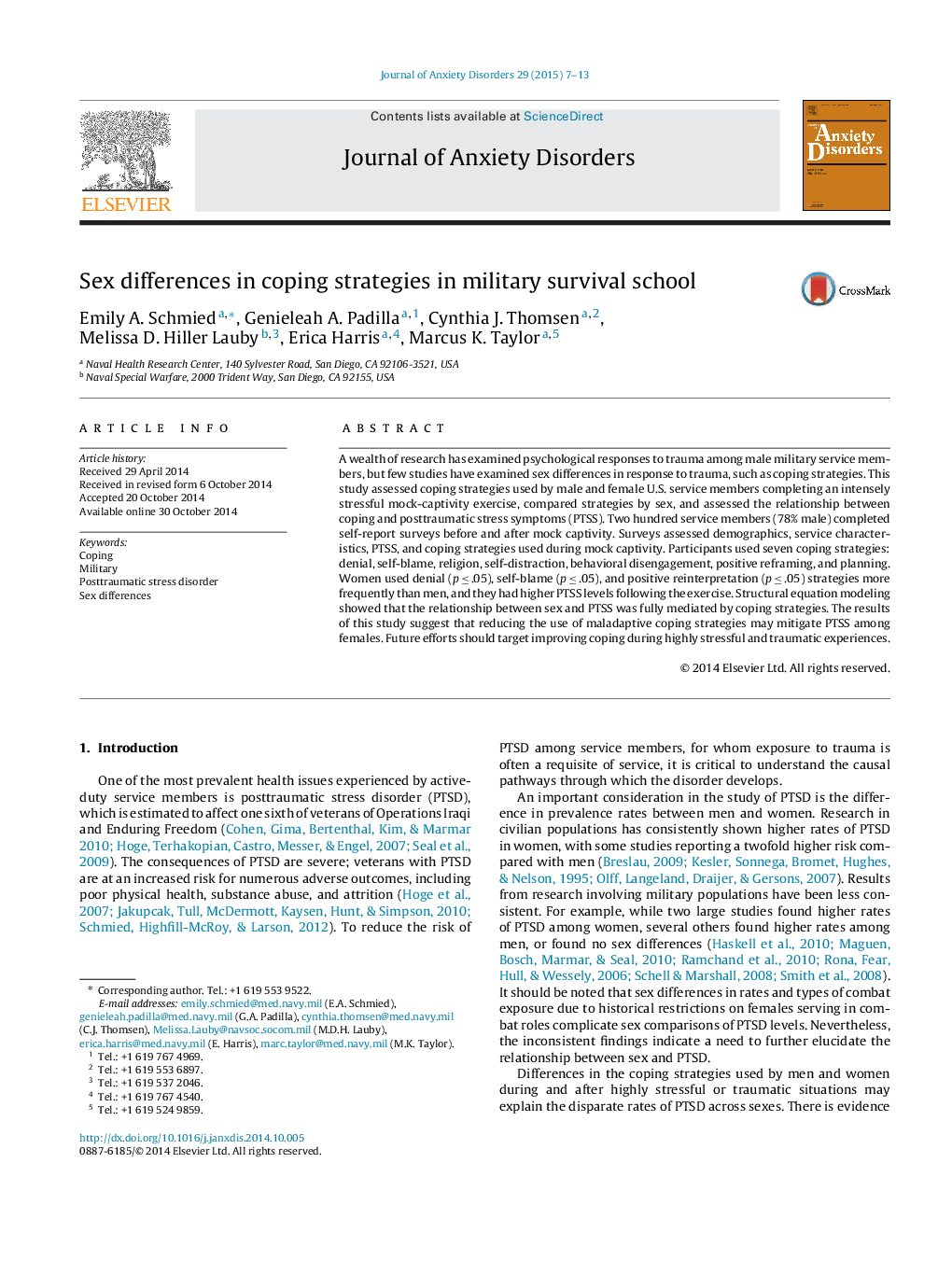| کد مقاله | کد نشریه | سال انتشار | مقاله انگلیسی | نسخه تمام متن |
|---|---|---|---|---|
| 909297 | 1473049 | 2015 | 7 صفحه PDF | دانلود رایگان |
• We examine sex differences in coping strategies used by military service members.
• Women are more likely than men to use maladaptive coping strategies.
• For both men and women, maladaptive coping is associated with posttraumatic stress.
• Reducing maladaptive coping strategies may mitigate posttraumatic stress symptoms.
A wealth of research has examined psychological responses to trauma among male military service members, but few studies have examined sex differences in response to trauma, such as coping strategies. This study assessed coping strategies used by male and female U.S. service members completing an intensely stressful mock-captivity exercise, compared strategies by sex, and assessed the relationship between coping and posttraumatic stress symptoms (PTSS). Two hundred service members (78% male) completed self-report surveys before and after mock captivity. Surveys assessed demographics, service characteristics, PTSS, and coping strategies used during mock captivity. Participants used seven coping strategies: denial, self-blame, religion, self-distraction, behavioral disengagement, positive reframing, and planning. Women used denial (p ≤ .05), self-blame (p ≤ .05), and positive reinterpretation (p ≤ .05) strategies more frequently than men, and they had higher PTSS levels following the exercise. Structural equation modeling showed that the relationship between sex and PTSS was fully mediated by coping strategies. The results of this study suggest that reducing the use of maladaptive coping strategies may mitigate PTSS among females. Future efforts should target improving coping during highly stressful and traumatic experiences.
Journal: Journal of Anxiety Disorders - Volume 29, January 2015, Pages 7–13
